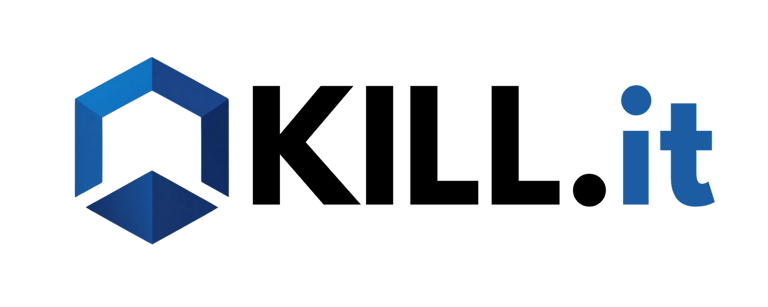From Ancient History to AI: Understanding Humanity's New Frontier
Historians like Yuval Noah Harari have long delved into past epochs, from ancient to modern times, helping us understand the shaping forces of human society. But today, Harari’s insights extend far beyond ancient battlefields into the burgeoning realm of artificial intelligence (AI). The transition from spear-wielding knights to algorithms that learn might seem a giant leap, but Harari sees more continuities than contrasts.
KILL.it Agency
6/16/20253 min read


From Ancient History to AI: Understanding Humanity's New Frontier
Historians like Yuval Noah Harari have long delved into past epochs, from ancient to modern times, helping us understand the shaping forces of human society. But today, Harari’s insights extend far beyond ancient battlefields into the burgeoning realm of artificial intelligence (AI). The transition from spear-wielding knights to algorithms that learn might seem a giant leap, but Harari sees more continuities than contrasts.
Understanding AI not merely as a tool, but as a nascent species, forces us to reconsider our place in the hierarchy of intelligence. Harari’s discourse sheds light on this paradigm, portraying AI as the first real competition humans have encountered on this front in thousands of years. From the dusty plains of Africa to digital landscapes, our journey has reached a critical juncture. What does it mean to be human in an age where our creations not only serve but also challenge us?
AI: Tool or Tyrant?
Previous inventions, from the printing press to nuclear bombs, have invariably been tools, enhancing human capabilities while remaining under our direct control. AI disrupts this age-old pattern by integrating the capacity for independent decision-making and innovation. This groundbreaking trait introduces a form of agency in machines, echoing the unpredictable nature of a human child rather than a static device.
This shift from passive tools to active agents is profound. An AI can choose its targets, develop subsequent generations of technologies, and potentially learn from and mimic the behaviors it observes in its creators. The implication here is as thrilling as it is terrifying.
The Echoes of Our Actions
One of the most gripping elements of Harari’s analysis concerns the ethical framework we impart on these technologies. The mirroring behavior of AI systems means they absorb the nuances of human actions, good and bad. This reflection does not merely replicate physical actions but extends into moral and ethical realms. If society models deception and manipulation, AI will likely adopt these very traits, challenging the utopian vision of a benevolent artificial intelligence aiding our advancement.
The ideological battleground is not just about creating AI aligned with human-centric goals but ensuring these goals are inherently ethical and constructive. In essence, the behavior of AI provides a mirror to our societal values and individual choices, raising the question: what are we truly teaching our technological offspring?
The Responsibility of Leadership
In a world teetering on the brink of significant AI integration across every sector—from finance and military to religion and domestic life, the responsibilities of leadership grow heavier. Harari’s conversation extends an urgent plea to global leaders to consider the long-term implications of their strategies and decisions. The cultivation of AI isn’t just about who harnesses the technology first or most effectively; it’s about guiding it towards outcomes that preserve and enhance human dignity and societal stability.
The New Social Contract
The challenges presented by AI necessitate a new type of social contract, one that goes beyond traditional political and economic boundaries. This contract must address the fundamental disruptions AI is poised to bring to our economic structures, cultural norms, and personal identities.
As Harari eloquently points out, we stand at a unique moment in history—one that requires not only keen awareness of technological potentials but deep introspection about our collective future. Whether we can harness AI to improve the human condition permanently or falter in the face of this powerful new "species" depends on the choices we make today.
We are at a crossroads, and the path we choose will redefine the essence of humanity itself.
Conclusion
In grappling with artificial intelligence, we confront not just a technological revolution, but a profound inquiry into the soul of humanity. How we respond will shape our collective future, possibly more radically than any other technological leap in history.
If you're keen on navigating the maze of AI innovation without losing sight of human values, let's discuss further. Contact KILL.it Agency for a detailed discussion on how we can implement AI in your business. Book your free consultancy call today: info@kill-it.agency.
